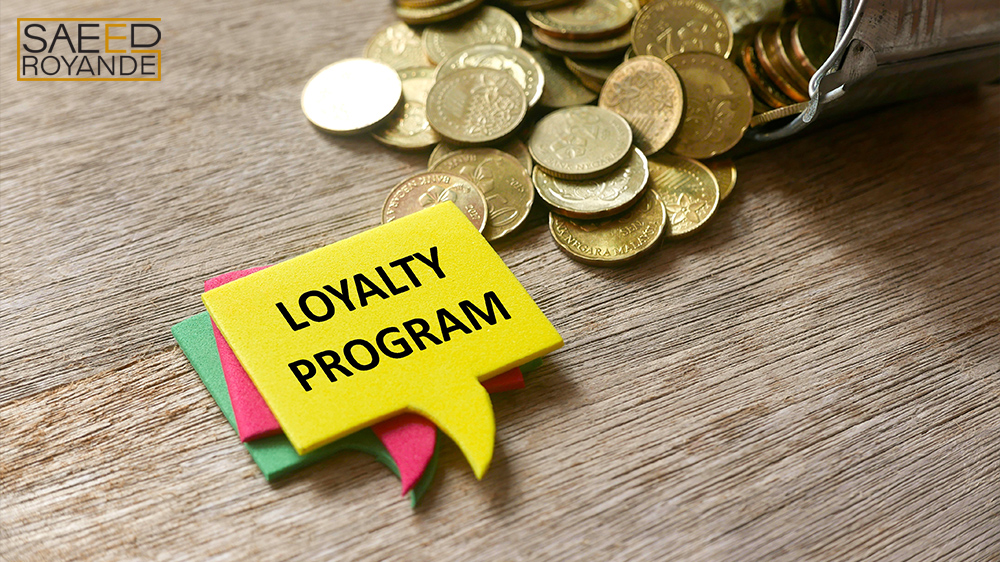Is there a customer loyalty program at your company? You could assume you’re rewarding your customers and enticing them to return if this is the case. But what if you find that by giving away freebies and discounts, you are losing money?
What is a Loyalty Program and Why is it Important?
The purpose of a loyalty program is to encourage repeat business by rewarding loyal consumers. Discounts, vouchers, and even free stuff are all fair game for these incentives. Building a stronger bond between the consumer and the business is one of the primary goals of a loyalty program. Loyalty programs can be categorized as either point-based, tiered, or VIP. There are benefits and drawbacks to both approaches and choosing one over the other ultimately comes down to corporate priorities and client tastes.

Laptop and Padlock
The Pros and Cons of Loyalty Programs for Businesses
Marketing loyalty programs aim to encourage repeat business and customer participation. Depending on the company’s objectives and the tastes of its clientele, they can present both opportunities and difficulties. The benefits and drawbacks of loyalty programs for companies include the following:
Pros:
- Businesses may retain existing customers and boost their lifetime value with the help of loyalty programs. If a company rewards its customers for their loyalty, those customers are more likely to return.
- Businesses can collect customer data through loyalty programs and utilize it to improve the customer experience. The more a company knows about its customers and their habits, the better it can tailor its recommendations, promotions, and responses to each individual. This has the potential to boost both customer happiness and loyalty.
- Businesses can gain trust and loyalty from their clientele and foster a feeling of community through loyalty programs. Businesses can demonstrate their gratitude and appreciation for loyal consumers by providing them with special discounts and other perks. As a result, you can see an increase in consumer satisfaction and brand loyalty.
- Businesses may increase market share and stand out from the competition with the help of loyalty programs. Businesses may stand out from the competition and win over new consumers by providing prizes that are both rare and desirable. By making it more difficult for customers to defect to competitors, loyalty programs can yield a strategic advantage.
Cons:
- It might be expensive to launch and keep up a customer loyalty program. The rewards and incentives, as well as the program’s conception, implementation, and management, all need financial investment on the part of businesses. The loyalty program must be evaluated for its return on investment as well as its benefits and expenses.
- Creating a customer loyalty program that speaks to every customer is challenging. Businesses must take into account their customers’ goals, needs, and expectations to provide them with incentives that are desirable and feasible. In addition, they should neither over- or under-reward clients, as this might lower the value of the awards they receive.
- Customers’ enthusiasm for loyalty schemes has been shown to wane with time. Customers can abandon ship if they become weary of the reward program or find a better deal elsewhere. Businesses should regularly survey loyalty program participants to get feedback and make changes as needed to keep the program interesting.
- Backfire occurs when a loyalty program is poorly implemented or misaligned with the brand’s identity. Some customers may view the loyalty program as deceptive or dishonest. The customer experience should be improved rather than harmed by the loyalty program, and businesses should stay true to their brand’s values, mission, and vision.

Gold coins and a stack of speech bubbles written loyalty program
What do Business Coaches Say About Loyalty Programs?
Professional business coaches are invaluable in assisting enterprises in reaching their full potential. Although they have varying viewpoints on loyalty programs, most people think that they may be an effective corporate tool if done properly. Sales loyalty programs are recommended by business coaches because of the many benefits they provide to firms in the areas of customer retention, client acquisition, data collection and use, customer trust and loyalty, and market differentiation. They caution, however, that if loyalty programs are not well implemented or in line with the company image, they can be costly, complex to create, lose client interest, and backfire. Thus, companies should take great care in conceptualizing, implementing, and assessing their customer loyalty initiatives.

Banknotes and hand drawing circular
Entrepreneurship VS. Loyalty Programs
There is a common association between entrepreneurialism and customer loyalty programs. Loyalty programs are marketing tactics that reward customers for recurring purchases or interactions with a firm, while entrepreneurship is the process of founding, launching, and running a new business endeavor. How do these ideas relate to one another, and what opportunities and pitfalls do entrepreneurs face when employing loyalty programs? If you’re a business owner, adopting a loyalty program can help you keep your current clients and perhaps enhance their lifetime value. If a company rewards its customers for their loyalty, those customers are more likely to return. The information gleaned from customer loyalty programs can be used to enhance future interactions with customers. Personalizing your recommendations, promotions, and feedback to each consumer is possible through observation of their actions and responses. Customer happiness and dedication can both rise as a result. You can increase client trust and loyalty and foster a feeling of community with the help of loyalty programs. Customers’ loyalty can be rewarded, which is a great way to show them they’re appreciated. In turn, this can help solidify client loyalty and expand your fan base. Increase your market share and set yourself apart from the competition with the help of a loyalty program. You may distinguish out from the competition and win over new consumers by providing them with rewards that they won’t find anywhere else.


